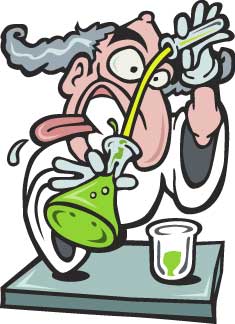GREED
by Julian Edney
- a new theory concerning the origins, nature, extent and morality of this destructive force inherent in free market economies; argues for a new interface with already-outdated environmental rhetoric; includes an array of practical solutions; extensive references.
http://www.g-r-e-e-d.com/GREED.htm


1 Comments:
From Pop
We're Due for a Revolution
Politically, economically and socially, our basic institutions are not guarding our values nor sustaining us as we think they ought to. We're due for a revolution. Hopefully not bloody, but certainly with much sweat and tears. Revolutionary change becomes bloody only when it is stifled too long.
Revolutions do not come because some radicals excite or mislead the people. They come "when in the course of human events it becomes necessary" to change the political and economic rules. A revolution comes because the political system is not working and all know it isn't working, except maybe the ruling elite, and they want it that way.
Fundamental change, bloody or not, is scary because once launched, no one knows who the winners and losers will be. Yet if we admit it is coming, we have a better chance of guiding it, preserving the best of the past and moderating the inevitable excesses. Revolutionary change in the system that guards our values, our freedom and our general welfare never comes gradually. Spurts of change are recurrent in our history. It happened under Andrew Jackson in the 1830's, under McKinley and Teddy Roosevelt around 1900, in the New Deal under FDR and in the 1960's.
We are due for another one. The course of human events makes it necessary. Consider our dysfunctional politics. Our electoral system no longer works to express the preferred choice of the people. Our primary system practically ensures that we will have a candidate supported by only a minority. Yet the primaries in most cases determine the eventual winner.
Then the "winner take all" general elections promote the tyranny of the majority. The rights of the minority get trampled on. George Bush, even when he did not win the popular vote in 2000, began a radical agenda almost immediately.
The stresses and strains in our economy are, if anything, worse. Vested interests, lobbyists to whom the officials owe a debt, now determine the economic rules and outcomes. Vested interests, that ruling elite, get theirs off the top. The result is an income distribution that is skewed to deliver great wealth to profit takers and to cut the income of wage earners.
Corporations have become out-of-control power centers undermining our freedom and values from outside the political system. They exist to serve only their stockholders. When it is legal, and sometimes when it isn't, they ignore the long-run costs they impose on others. Pharmaceutical companies shower money on legislators and get a senior drug assistance program that rewards them. The credit card companies, not the people, wanted control of bankruptcy and they bought it. Wall Street is paying whatever it takes to get the social security private accounts they can skim.
The economy produces just so much GDP each year but we no longer agree how much should go to the education of our youth, how much to support families or how much to feed, clothe and house the elderly. Does a lifetime of hard work and the sacrifices of raising children merit a healthy time of leisure to baby-sit the grandchildren or play golf? Or should we vaccinate all our children? What are our priorities? Most seem to agree that our tax system needs a revolution. But there is no agreement on what a new tax system should look like nor even what public services should be provided. Gated communities are, in effect, opting out, setting up separate tax systems outside the public domain. And we all know that property taxes are not the way to finance our much criticized schools.
The bed-rock concept of private property is in doubt. Governments are changing the rules of eminent domain to take property to give it to another private citizen for a supposedly more efficient use. Intellectual property laws are set up to serve an industrial society and not our information society - so no one obeys them. This is the underlying course of human events that is negating our values and redistributing our income. But sharp change is never welcome, is costly in many things we cherish and it seldom brings what we started out looking for.
For the time being, the revolution is being put off, borrowing time by borrowing money. The increase in the trade and budget deficits and the refusal to pay for the necessary new social and economic infrastructure merely delay everything. It just means that the sweat and tears will be greater for our children and grandchildren. The longer we stifle gradual change, the less likely our next revolution will be peaceful.
Post a Comment
<< Home